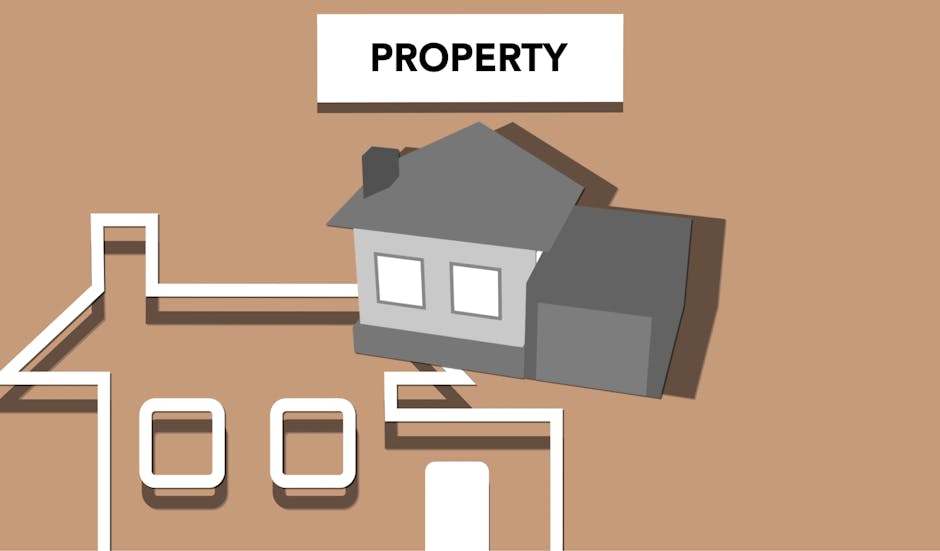Introduction
Imagine walking into your home — lights flicker on, your favorite playlist hums in the background, and your air conditioning has already cooled the room to the perfect temperature. This is no scene from a sci-fi movie; this is the present reality with smart home investments. A smart home is an intuitive, tech-enabled dwelling that allows homeowners to control devices and appliances with the touch of a button or a voice command.
This isn’t a fantastical vision of the future or an extravagance reserved for the tech-savvy or the well-heeled. Rather, smart home technology is a rapidly rising trend, becoming more accessible, more affordable, and more commonplace in homes around the world every day.
It’s not just about having a tricked-out, convenient space to call home; it’s also about making savvy investment decisions to boost the value of your property. We’re not just talking about appealing to tech enthusiasts or the Millennial and Gen-Z markets. Believe it or not, from retirees to first-time homebuyers, the demand for tech-enabled homes is skyrocketing across all demographics.
Stay with us on this journey as we delve into how you, too, can jump onto this potentially lucrative bandwagon of smart home investments. Let’s show you how to not just modernize your living space, but also significantly increase your property value. Sit tight! This ride is going to be enlightening, introducing you to a brave new world in which your home isn’t just your castle, but your trusty, intuitive sidekick.

Smart Home Investments and Property Value
In the evolving world of modern real estate, smart home investments have emerged as one of the most effective ways to increase property value and allure. Advancements in technology have turned what once seemed like deluxe science-fiction dreams into affordable, everyday realities. Today’s homes go beyond providing shelter; they come equipped with advanced features that enhance living standards.
The Power of Smart Home Technology
In our modern era, home functionality extends far beyond basic necessities. With the aid of technology, homes can:
- Optimize lighting based on natural patterns
- Program thermostats for energy efficiency
- Regulate home security measures
- Predict when to start brewing your coffee
Smart Homes and Property Value: The Connection
So what’s the economic impact of these technological advancements?
Several recent studies highlight a definitive correlation between smart home enhancements and property value. For instance, based on data from The National Association of Realtors:
- 33% of Realtors found homes with smart features commanded higher prices
- Smart home investments add tangible financial value to properties
The potential bump in property value stems from the growing demand for smart homes among different demographics, notably millennials, the largest group of home buyers today.
The Unique Mix That Smart Homes Offer
Smart home technologies not merely bring futuristic elements to your doorstep. They offer potential buyers a unique mix of luxury, convenience, and efficiency:
- High-tech enhancements often indicate a property that’s been well maintained and updated, making it attractive in the competitive real estate market
- Practical benefits include improved energy efficiency, precise temperature control, increased home security, and unprecedented convenience
In closing, investing in smart home technology isn’t just about living on the cutting edge of modernity. It’s a strategic move aimed at enhancing living standards while boosting property values – indeed a smart decision, all-round.

Energy Efficient Technology
In our modern world, where conservation and sustainability have become a primary focus, investing in energy-efficient technology significantly bolsters the value of a home. These investments can range from solar panel installations to real-time energy monitoring systems and smart thermostats, all designed to reduce energy waste and lower utility bills.
Let’s begin with solar panels. Transitioning from traditional energy resources to a solar-powered system can significantly increase the value of a dwelling. It’s a direct investment in a home’s functionality and in a greener future, a feature that particularly appeals to environmentally-conscious buyers.
Similar in concept, adopting smart thermostats is another investment worth considering. With their ability to learn a homeowner’s schedule and preferred temperature settings, these nifty devices can significantly reduce energy consumption and, consequently, the energy bill. As a result, the property gains additional value because incoming homeowners can anticipate energy savings over the life of the property.
The beauty of these energy-efficient technologies lies in their dual functionality—they not only provide tangible financial benefits but also contribute to a greener, more sustainable living environment. So, when you’re adding value to your home, you’re also playing a part in preserving our world for future generations.
Remember, when these efficient elements become part of the house’s fabric, they virtually add “green” points to its value, making it an appealing investment for potential buyers. In the long run, the marriage of smart technology, energy efficiency, and real estate translates into a remarkable value-add idea. It’s a “bright” move that stands to reward homeowners today and in the future.

Introduction to Smart Home Security
When you explore the concept of smart home security, you’re exposed to a broad range of technologies specifically designed to offer unparalleled protection for your home. These include, but certainly aren’t limited to, smart locks, cutting-edge alarm systems, and proficient security cameras. These devices offer more than just flashy names. They present immense value.
The Power of Smart Locks
Just imagine – a smart lock. It offers security beyond the scope of a simple key, which can easily be lost or duplicated. Instead, these technological security wonders use unique codes, fingerprint scans, or even facial recognition. A common thief is unlikely to circumvent these measures.
Innovations in Alarm Systems
Next in line are the inventive alarm systems. These blend motion sensors with window break detectors and noise alerts to elevate the traditional “intruder alert” system. They don’t just deter burglars; they alert the relevant authorities or designated contacts about potential threats.
The Advantage of Smart Security Cameras
However, we’re only beginning to uncover the potential of smart home security. The real game changer? Security cameras. They not just record your premises in comprehensive detail, but also allow real-time monitoring from virtually any location thanks to enhanced connectivity. Some also function as intercoms, providing a channel to communicate with couriers or gently inform unwanted visitors of their discovery.
The Increase in Home Value
The correlation between smart home security and the increase in home value might not be immediately apparent. Imagine touring a potential home. You enjoy the aesthetic wallpaper, appreciate the abundant natural light, and then you notice the smart security system. Instantly, in your mind, the property’s value skyrockets. Why? Because security is invaluable and provides peace of mind. It’s a peace of mind that potential buyers are likely willing to pay more for.
In conclusion, smart home security technologies don’t just protect your home. They also significantly increase its appeal to potential buyers, thus inflating its market value. So, with smart security, you’re not just living securely; you’re living smartly.

High-Tech Kitchen and Bathroom Renovations
Two rooms that often play a significant role in a home’s overall value are the kitchen and bathroom. With the proliferation of smart technology, it’s no surprise that these critical spaces have also seen an infusion of high-tech upgrades, ultimately influencing property value.
At the heart of the smart kitchen lies a new breed of refrigerators, equipped with features far beyond ice-making and filtered water. Smart refrigerators now come with built-in Wi-Fi, touchscreen interfaces and even internal cameras. Ever forget if you need to pick up milk from the store? Your refrigerator can now tell you. Properties with such cutting-edge kitchen appliances are often appraised at higher values due to the convenience and capability they offer.
Bathrooms, too, are not left behind in this high-tech journey. Digital faucets are becoming increasingly common, boasting features such as touch-free operation, water temperature and flow control through a digital interface. Not only does this mean high precision convenience, but it also implies significant water savings—an appealing attribute for eco-conscious buyers. High-tech bathroom upgrades like these can add a sense of modernity and luxury, which can often translate into a higher asking price for your property.
Moreover, smart kitchen and bathroom upgrades are not just about the wow-factor; they bring functional enhancements that can simplify day-to-day life. A digital kitchen scale integrated into the countertop, a smart mirror in your bathroom that gives you weather updates – it’s these seemingly minor conveniences that add up to make a significant difference in homeowner experience and, consequently, property value.
In conclusion, investing in high-tech kitchen and bathroom renovations can boost your property’s value not only by creating a contemporary, luxurious aesthetic but also by providing practical, convenient solutions to everyday living. It’s well worth considering these upgrades to not only transform your living spaces but also see a profitable return upon property resale.

Home Tech and Real Estate Market
You simply can’t talk about the properties of the future without a thorough discussion on how smart home technology is reshaping the very nature of the real estate market. It’s been said that technology and necessity are the parents of innovation – and the real estate field isn’t an exception to this rule.
For starters, homeowners aren’t just dabbling in technology these days; they’re fully embracing it as part of their lifestyle. From home automation systems that save energy to smart locks that offer advanced security features, buyers are beginning to consider these technological additions as standard home features, rather than luxurious extras.
In fact, a survey conducted by Coldwell Banker showed that nearly two-thirds of their respondents were more likely to buy a smart home. In the age of the Internet of Things (IoT), where even the toaster can be programmed to prepare your breakfast before you’re out of bed, this hardly comes as a surprise.
With these changes in homebuyer shopping lists, real estate listings are reflecting the same trend. A property boasting a Nest Thermostat, Ring Doorbell, or a fully integrated smart home system is quite likely to shine brighter amid the sea of listings, potentially attracting more prospective buyers and a higher price tag.
Furthermore, real estate agents themselves are taking note of this shift. They’re not just learning the lingo, but also the operations of these devices, to better showcase the property. A tech-savvy property isn’t measured by the number of bedrooms or bathrooms anymore, but rather by the level of convenience and efficiency it offers – factors that are, more often than not, the result of high-tech enhancements.
So, in a nutshell, the infusion of smart home technology into the property mix is shaping the way real estate is bought, sold, and valued. And in a market that thrives on evolving with the consumers’ needs, it’s no wonder that smart home advancements are not only welcomed but celebrated.

Smart Homes and Sustainability
In today’s world, smart home technologies are not just about convenience and efficiency; they’re fast becoming an integral part of sustainable living. The merging of smart home tech and environmental sustainability has resulted in homes that optimize energy use, minimize wastage, and even directly involve homeowners in the upkeep of the planet.
One prominent facet of this blend is the use of technologies that foster energy efficiency, such as energy-monitoring devices and eco-friendly energy sources. As our gadgets learn our routines, they’re tailored to use minimum energy, cutting down on our carbon footprint.
Another key player here is sustainable technologies like solar panels. Although an expensive one-off investment, they’re built to last and can considerably cut down on energy expense in the long run. Surplus energy can even be transmitted back to the grid, effectively turning your home into a mini power station that provides for others.
Even small-scale technologies like smart thermostats and lights contribute by automatically dimming or shutting off when not needed or when occupants are not present. This, compounded over an entire year, results in a noticeable decrease in energy waste.
On the other hand, the adoption of green home technologies plays a role in home valuation. According to the Department of Energy, for each $1 decrease in annual energy costs, the market value of a home increases by $20. Therefore, every installed sustainable technology is an investment towards not just the sustaining of the planet, but also towards the dollar value of your property.
In essence, smart home technologies and sustainable practices have started to become synonymous in the contemporary housing market. The scale is tipping in favor of properties where high-tech applications meet environmental responsibility – a key reflection of the growing value society places on the sustainable home.

Planning Smart Home Investments
Planning and executing smart home technology upgrades might seem like a daunting task, especially if you’re new to this realm. Fear not, as we’re about to take you through some steps and tips to master the game.
Preliminary, it’s crucial to educate yourself about the different options available in the market. Don’t rush into buying the first glittery gadget you see. Make sure to do your homework and understand what benefits each device will bring to your home, which one fits your lifestyle, and how it might increase your property’s value.
Moreover, it’s useful to set clear and informed objectives before moving ahead. Are you investing in smart home technology to save on utilities, enhance security, or provide more comfort and convenience? Or perhaps it’s a combination of all these plus an increase in property value. Defining these objectives will guide your choices and prevent you from making unnecessary purchases.
Equally important is to invest in tried and true technology. Though the frontier of smart home technology offers many temptations, sticking to well-reviewed and popular choices can avoid pitfalls of nascent tech. Don’t forget to take into account the system’s compatibility with your current home system and other devices you’re planning to get. It all should work together smoothly, creating a synchronized and harmonious environment.
Beyond that, it’s valuable to consider aesthetics. While a gadget might come with all the bells and whistles, if it sticks out like a sore thumb, it’s likely to decrease, rather than increase your property value. Look for devices that can effortlessly blend with the rest of your decor.
Finally, attention should be paid to technology that gives the best return on investment (ROI). Some upgrades, such as energy-efficient technology or high-tech kitchen and bathroom renovations, tend to offer a higher ROI. Don’t be afraid to seek advice from professionals who can provide tailored recommendations.
In a nutshell, smart home investments should not be made in haste. A successful transition to a smart home requires careful thought, planning, and execution. When done right, it can significantly add to the appeal of your home and its overall value. To make this venture even more manageable, consider breaking it down into stages – Rome wasn’t built in a day, and your smart home doesn’t have to be either!

Conclusion
As we’ve navigated through this exploration of smart home investments, one fact remains crystal clear: when made wisely, these enhancements significantly increase property value. But this boost in valuation isn’t the only advantage. Smart home technology, be it energy-efficient mechanisms or high-tech security systems, brings current property owners an unprecedented level of comfort and convenience.
Let’s revisit: those state-of-the-art kitchen and bathroom renovations not only add a futuristic feel to everyday tasks, but also translate into desirable features that potential buyers are willing to pay extra for. Energy-efficient technology does double duty by reducing utility bills and making your home more sustainable — an increasingly important selling point in today’s eco-conscious society. Then there’s the intelligent security systems. Having a safe, secure living environment is well, frankly, priceless.
In the broader perspective, while smart home technology is continuously reshaping the real estate market, one fact remains immutable; it’s an investment that brings tangible returns, almost like putting your money in a high-interest bank.
However, like any significant venture, smart home investments should be well-thought-out and meticulously planned. Remember, technology evolves at a breathtaking pace, so choose tech upgrades that offer longevity and have a high potential of yielding a robust return on investment.
So whether you’re considering dipping your toes into the smart home trend or already have a blueprint for a high-tech haven, remember the long-term benefits that come with such investments. They straddle the twin worlds of enhanced living experience for today’s owners and increased property valuation for tomorrow’s potentially lucrative sale. And in both worlds, the outcome is promisingly beneficial.
In short – to increase your property’s value and your living experience, embracing smart home technologies isn’t just clever; it’s smart, in every sense of the word.